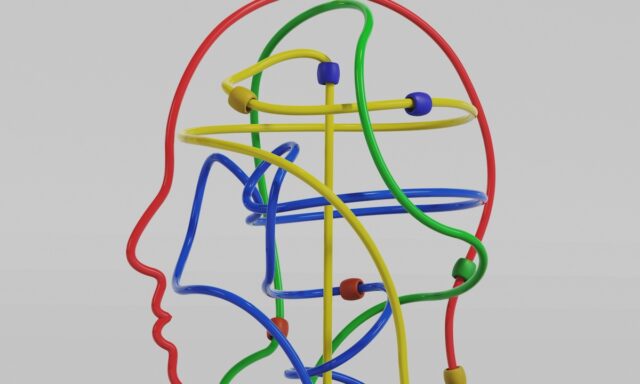
Legal expert Tim Spencer-Lane provides insights into the Bill’s progress, the debates shaping its final form, and the practical implications for NHS Trusts, ICSs, and mental health professionals.
The ongoing passage of the Mental Health Bill 2025 represents a significant shift in how mental health legislation operates in the UK. Stemming from the 2018 Wessely Review, which sought to enhance patient autonomy, address racial disparities, and reduce detentions, the Bill has retained much of its original vision while undergoing crucial refinements.
However, as Tim Spencer-Lane, a leading legal expert on mental health law explains, the rhetoric around detention rates has been noticeably tempered, reflecting the government’s cautious stance in light of recent high-profile cases.
“The Bill was always intended to reduce detentions,” Spencer-Lane noted, “but following incidents like those in Nottinghamshire, the focus has slightly shifted. The government is now keen to ensure that people are detained where appropriate, rather than just reducing numbers. The primary purpose remains, but the language has cooled.”
Progress and legislative dynamics
While the Bill has advanced steadily, the members of the House of Lords have introduced notable debates, particularly concerning the exclusion of autistic individuals and those with learning disabilities from long-term treatment frameworks. Spencer-Lane outlined a key concern. “Will they just be detained under a different system, or will they fall through the gaps? By excluding them from other legal frameworks, does it simply shift the burden onto the criminal justice system? These are live issues.”
Another high-profile discussion has been the role of the police in mental health crises. Former Prime Minister Theresa May has led an amendment proposing that not just police but also healthcare professionals, social workers, and paramedics should have powers to detain individuals in crisis situations. “This sounds appealing on the surface,” Spencer-Lane explained, because of their greater clinical expertise, “but it places a significant new responsibility on frontline mental health workers. There are important debates to be had here.”
Systemic implications and legal challenges
Beyond the legislative process, the Bill carries profound implications for the NHS, Integrated Care Systems (ICSs), and mental health professionals. The increased emphasis on statutory care and treatment plans, along with the introduction of Advance Choice Documents (ACDs), signals a move towards a more patient-centred system. However, Spencer-Lane warned that implementation will be a major challenge: “The government’s position is that it will only introduce parts of the Bill when funding is available. We could be looking at a ten-year phased implementation.”
From a legal perspective, the reforms are transformative. “Compared to previous reforms — such as the New Labour changes in 2007, which were dominated by public protection — the 2025 Bill goes far in promoting patient rights. There will be new rights to refuse treatment, more stringent criteria for detention, and a reduction in the use of community treatment orders (CTOs). This is a significant shift in the balance between patient rights and public safety.”
Key areas for NHS trusts and ICSs
Mental health trusts and ICSs will need to act swiftly to accommodate several substantial changes:
Implementation: Timelines and practicalities
There is still no definitive government plan for rolling out the Bill. Spencer-Lane noted: “Peers in Parliament are pushing amendments to force the government to set out a clear timetable for implementation. There’s also a call for a mental health commissioner — an independent figure akin to the children’s or victims’ commissioner — to drive change and hold the government accountable.”
While some aspects of the Bill could be implemented swiftly, others are more resource-dependent. “My guess is that reforms around autism and learning disabilities will take longer, as they rely on stronger community services. Tribunal expansions, too, will be resource heavy. But changes to detention criteria could be relatively quick.”
The broader policy landscape
One of the more progressive elements of the Bill is its recognition of community-based support. “We are beginning to turn away from purely hospital-based provisions. The Bill starts to acknowledge the importance of upstream community interventions,” Spencer-Lane added. “It’s not a giant leap, but it’s a shift in the right direction.”
However, the Bill stops short of directly tackling racial disparities in mental health care. “The Wessely Review saw this as a main area for reform, yet the bill doesn’t address it explicitly. The government argues that this will be covered in training and the code of practice. But there are calls in Parliament for something more concrete — perhaps appointing a responsible person in each hospital to drive racial equity initiatives.”
Final thoughts
With the Bill expected to be finalised by spring, Spencer-Lane urged stakeholders to engage proactively. “The legislation itself won’t change radically at this stage. But once passed, the work of developing the code of practice will begin. That’s where providers and professionals can have a real impact — feeding into consultations and shaping the guidance that will define how the act is implemented.”
Ultimately, the Mental Health Bill 2025 represents a significant, if cautious, evolution in mental health law. While it introduces important new rights and reforms, its success will depend on how well the NHS and other bodies can resource and implement its provisions. As Spencer-Lane concluded, “It’s easy to get hypnotised by legislation. But the real challenge is making it work in practice.”
Three key takeaways
(1) Implementation will be gradual and resource-dependent
The government has indicated that only parts of the Bill will be introduced when funding is available, meaning a potential decade-long phased implementation.
(2) Greater patient rights bring legal and practical challenges
The shift towards patient autonomy introduces significant changes, but questions remain on how to ensure sufficient resources for tribunals, second opinions, and the delivery of care plans and ACDs.
(3) Stakeholder engagement is crucial
With much of the detail left to the code of practice, mental health professionals, NHS trusts, and ICSs must engage early in the consultation process to help shape how the law is applied in practice.



